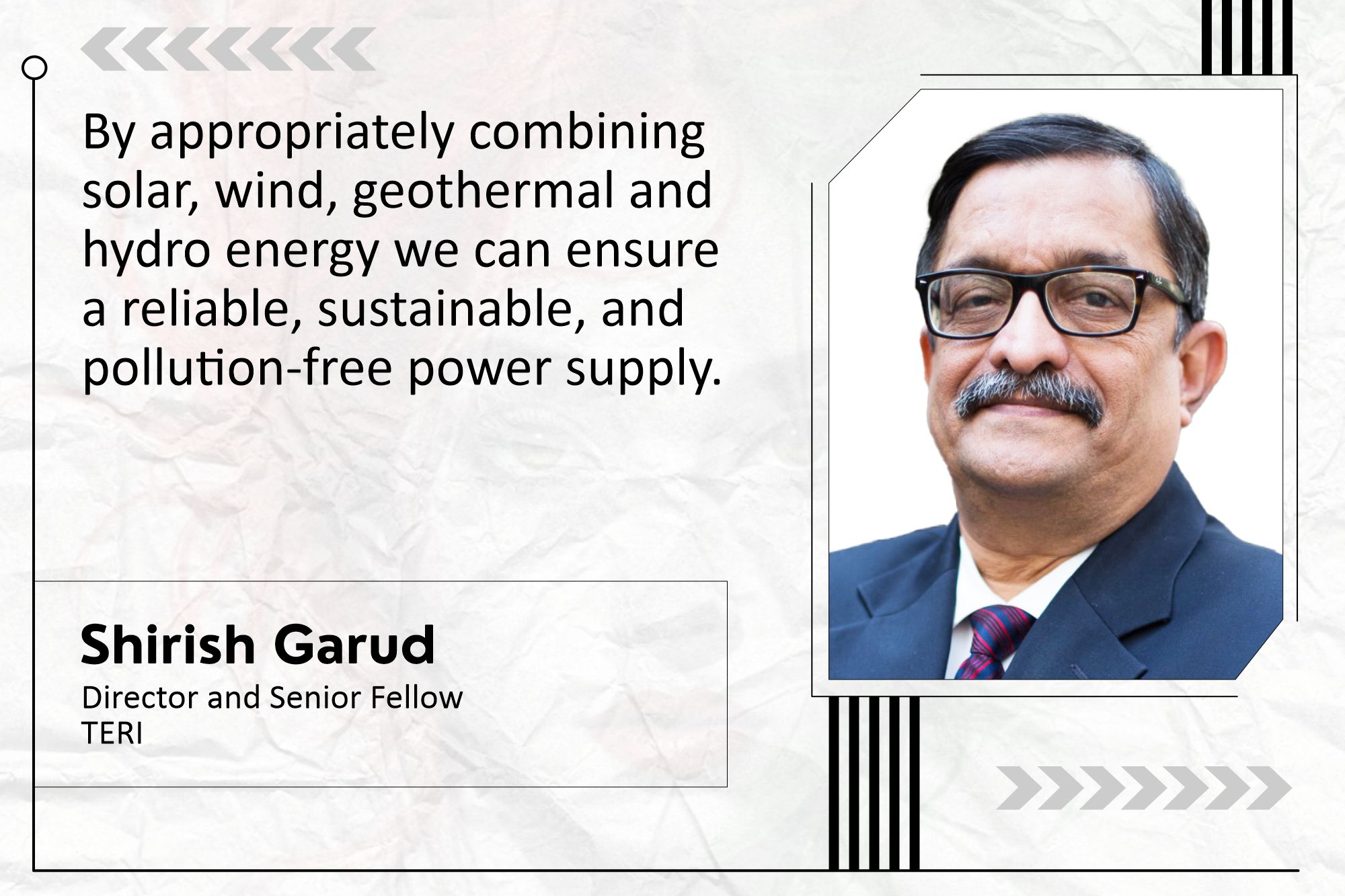Continuous innovation and robust R&D essential for achieving energy transition goals
By EPR Magazine Editorial March 25, 2025 7:16 pm IST
By EPR Magazine Editorial March 25, 2025 7:16 pm IST

Technological advancements are necessary to address challenges in grid management, energy storage, renewable energy generation and industrial electrification.
The global energy landscape is transforming, with energy transition emerging as a central theme in mitigating climate change. As carbon emissions significantly threaten humanity and the environment, countries worldwide commit to reducing their greenhouse gas (GHG) emissions. The Paris Agreement 2015 marked a turning point, with nations setting ambitious goals through Nationally Determined Contributions (NDCs). As one of the fastest-growing economies, India holds a crucial role in this global movement.
While historically, developed nations have contributed the most to cumulative carbon emissions, India is now among the top emitters due to its rapid economic growth. With a GDP growth rate of around 6-7 percent annually, the country’s energy consumption is escalating. Peak electricity demand has increased from 200 GW a few years ago to over 250 GW in 2023, with expectations to exceed 275 GW soon. India has committed to achieving 500 GW of renewable energy capacity by 2030 to address this rising demand sustainably.
This transition involves reducing reliance on coal-based power generation and significantly increasing the share of renewables like solar, wind and hydro. Simultaneously, the government is exploring nuclear energy as a stable, clean, reliable base load power source. Achieving energy transition goals requires continuous innovation and robust research and development (R&D). Technological advancements are essential to address challenges in grid management, energy storage, renewable energy generation and industrial electrification. Advanced grid management systems utilising smart grids and digital solutions are necessary for real-time prediction and management of energy demand and supply. AI-powered systems can optimise grid stability and enhance operational efficiency, ensuring the integration of renewable energy sources with minimal disruptions.
Renewable energy efficiency also remains a crucial focus. Developing high-efficiency solar photovoltaic (PV) cells and advanced wind turbine technologies can significantly enhance energy generation. Offshore wind energy projects offer immense potential by harnessing untapped resources, while innovations in solar thermal technologies contribute to higher energy conversion rates.
Energy storage solutions are pivotal to managing the intermittency of renewable sources. Next-generation battery storage systems and hydrogen storage technologies provide reliable backup power, ensuring continuous energy supply. Developing and deploying these systems at scale will enhance the resilience of the energy grid. Electrification of industries and transport systems is another essential aspect of the energy transition. Transitioning to electric mobility powered by renewable energy sources and adopting green hydrogen as an alternative fuel can drastically reduce emissions. Such advancements will support sustainable industrial operations and promote cleaner transportation networks.
Nuclear energy advancements are also gaining attention, with Small Modular Reactors (SMRs) providing enhanced safety features. Thorium-based nuclear technology minimises nuclear waste and mitigates environmental risks, making it a viable option for stable base-load power generation.
India is fostering collaboration between public institutions and private enterprises to accelerate innovation. A notable example is the partnership between The Energy and Resources Institute (TERI) and the Bureau of Energy Efficiency (BEE) to establish a dedicated research institute for energy transition in Hyderabad. This public-private collaboration aims to drive advancements in grid management, policy innovations, and climate finance mobilisation.TERI, a leading not-for-profit research institute established in 1974, has significantly promoted sustainable development. Its research spans energy efficiency, renewable energy, climate change mitigation, sustainable agriculture and urban infrastructure. To support innovation, the Indian government has introduced several policies and schemes. The Production-Linked Incentive (PLI) Scheme promotes domestic manufacturing of solar cells, modules and batteries. The National Green Hydrogen Mission is accelerating the adoption of green hydrogen as a clean energy alternative. The Faster Adoption and Manufacturing of Electric Vehicles (FAME) initiative supports the electrification of the transport sector. Additionally, grid modernisation projects strengthen transmission and distribution infrastructure for renewable energy integration. The government’s recent budget has also allocated funds to promote nuclear energy development, focusing on advanced reactors and clean energy solutions.
We use cookies to personalize your experience. By continuing to visit this website you agree to our Terms & Conditions, Privacy Policy and Cookie Policy.